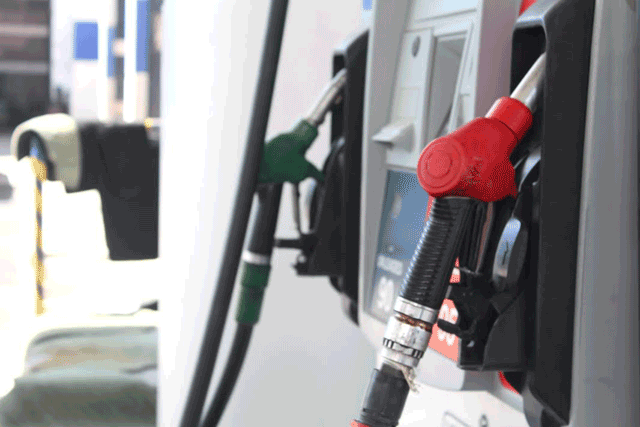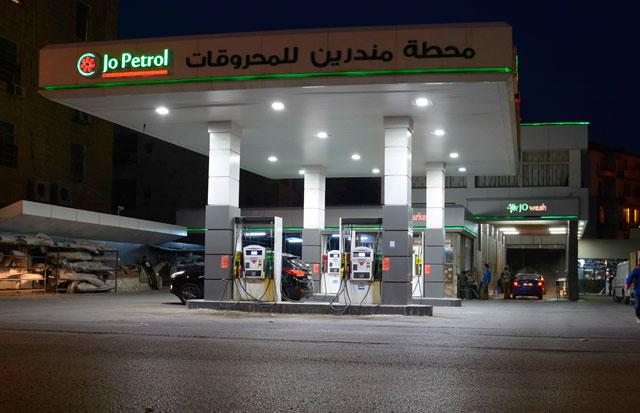You are here
Gas station owners demand sales commission increase amid inflation, high operational costs
By Rayya Al Muheisen - Aug 07,2023 - Last updated at Aug 07,2023

Representative image (Photo by Taija PerryCook)
AMMAN — The Gas Station Owners Association (GSOA) is calling on the government to increase the energy sector’s commission on the sale of petroleum derivatives by 22 fils per litre considering the increases in inflation and the operational costs.
GSOA President Nahar Seidat told The Jordan Times that the energy sector is struggling financially, forcing many petrol stations to close down due to years of accumulated losses.
“We demand the government to increase the fuel sector’s sales commission from 18 fils per litre to 40,” Seidat said.
“Most petrol stations in the Kingdom have become unprofitable, except for some stations in Amman and Aqaba,” Seidat added.
According to the GSOA president, 46 per cent of fuel consumption is concentrated in the capital, where diesel accounts for 52 per cent of local fuel consumption. Gasoline constitutes the majority of the remaining consumption percentage, with a very limited percentage attributed to kerosene consumption.
“Over the past several years, there has been a significant increase in operational costs for petrol stations, such as rising social security rates and work permit fees for foreign employees,” Seidat said.
Moreover, the continuous rise in operating capital requirements, along with interest rates hikes and other associated costs, have contributed to the financial burden on the stations, said Seidat.
An increase in the number of petrol stations has reduced the share of daily sales for many stations, especially in remote areas, Seidat added.
“This has also led to an overall decline in the total sales of the stations, compounded by the spread of electric and hybrid cars and reduced consumption resulting from high fuel prices, which has had an undeniable impact,” he said.
While petrol station owners are demanding that the increases be integrated into the fixed tax, some consider this implementation challenging, since the tax is authorised by law and any changes to it require legal amendments, which can take months.
Energy Expert Hisham Aqel told The Jordan Times that the demand for increasing the sector’s commission by 22 fils per litre is “not reasonable”.
“I suggest an increase of 7 fils per litre, which is a logical demand based on the local market,” Aqel said.
Aqel believes that there are two solutions for the sector’s challenges. First, gas stations should adapt to the local market’s change in consumption patterns by installing electric car chargers, he suggested.
According to Aqel, installing electric car chargers should be a must for all struggling stations, especially since earning a permit to install an electric charger is “so easy”.
“There are fewer than 50 petrol stations with electric car chargers nationwide,” Aqel added.
The demand for electric cars is on the rise, meaning that gasoline will no longer have the demand that it used to, forcing gas stations to find an alternative, according to Aqel.
Of the vehicles licensed to enter Jordan in June, 58 per cent were electric vehicles, he noted.
Energy expert Amer Shobaki told The Jordan Times that end consumers cannot handle any increases in fuel prices.
“While gas station owners deserve an increase in fuel commissions due the increases in costs, consumers are already struggling to pay with the current prices,” Shobaki said.
There is a strategic error in terms of distributing commissions for petroleum derivatives in Jordan, Shobaki added.
“The fixed tax on petroleum derivatives, which was set in 2018 and applies to all types of fuel, including gasoline and diesel, leaves little room for gas stations owners to make money,” he said.
According to Shobaki, approximately 18 fils per litre go to the petrol stations and 12 fils go to distribution companies.
Globally, distribution companies do not receive a commission, since they already profit from either the import process or from the refineries if the country is a producer, as the refining process provides a significant profit margin, he said
In terms of imports, substantial profits are also factored in, Shobaki noted, suggesting that the 12 fils be allocated to the petrol stations instead.
Related Articles
AMMAN — Gas Stations Owners Association (GSOA) President Nahar Seidat has demanded the government to increase commission for the fuel sector
AMMAN — Gas stations workers receive low wages because of the low commission ratio set by the government and the high operation costs at sta
AMMAN — Police on Thursday said they are searching for two men who reportedly robbed two gas stations in Amman and Madaba earlier in the day

















